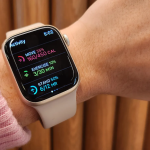Lack of Rigorous Evidence in Clinical Data for FDA-Approved Prescription Digital Therapeutics, Study Finds

A recent retrospective analysis of clinical data supporting 20 FDA-approved prescription digital therapeutics (DTx) has raised concerns about the application of rigorous evidence standards in their approval. Published in the journal Health Affairs, the study revealed that only two of the FDA-approved prescription DTx on the market were backed by randomized, blinded, and controlled trials, considered the gold standard for medicinal products.
The investigation, conducted under the FDA’s Software as a Medical Device (SaMD) framework, identified 20 prescription DTx authorized for use across 22 indications, supported by 117 clinical studies. Notably, 40% of the products lacked corresponding clinical trials for their FDA-approved indications. Among the identified clinical studies, approximately 20% were observational, while 38.5% were randomized controlled trials (RCTs). However, over two-thirds of these RCTs did not incorporate blinding, a crucial aspect of rigorous trial design.
Of concern, more than 60% of RCTs did not publish results on the US ClinicalTrials Register, potentially violating FDA regulations. The study also revealed that two-thirds of clinical studies were conducted post-market, utilizing less rigorous evidence standards than pre-market studies. Additionally, over half did not report inclusivity data, raising questions about the real-world applicability of these digital therapeutics. The exclusion of older adults and individuals not proficient in English further compounded concerns.
These findings come amid challenges facing the prescription DTx sector, where companies, despite having multiple FDA-approved products, struggle to build sustainable businesses. Akili, a pioneer in the field, has even decided to exit the prescription market and focus on a direct-to-consumer business model.
While most prescription DTx are approved through the FDA’s 510(k) pathway, which generally doesn’t require clinical data, the study suggests that companies miss opportunities to generate high-quality evidence before market entry. The authors, from the University of California San Francisco (UCSF) and Yale University, emphasize that “a stronger evidence base would increase confidence in these technologies’ effectiveness and would enable more informed decision making about their clinical use and coverage.”





